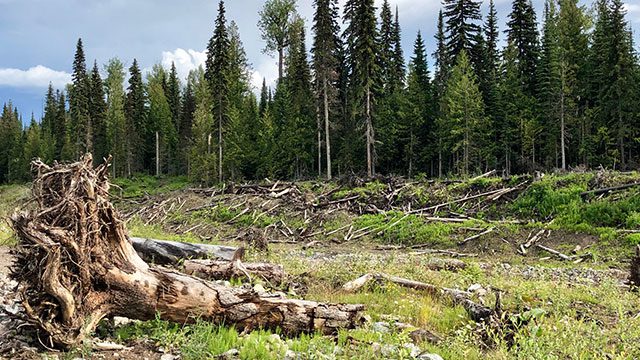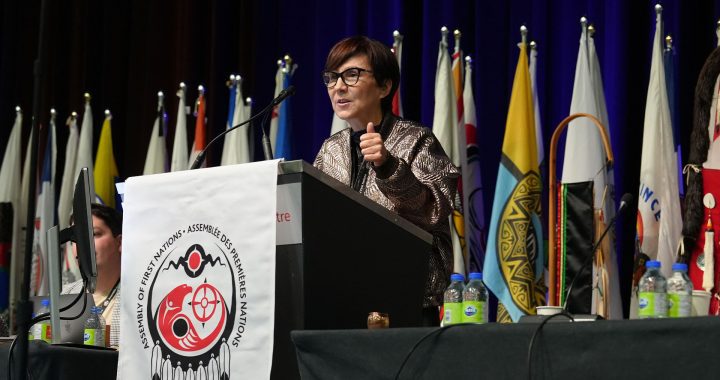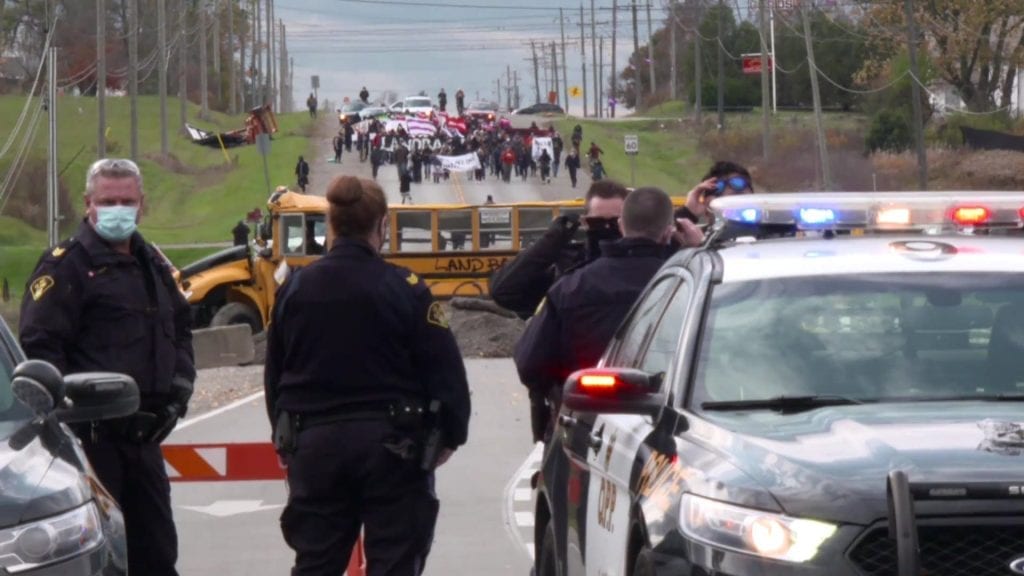
OPP officers watch as a peaceful protest marches to the Argyle Street blockade. Photo: Steve Mongeau/APTN
Businesses and residents who’ve felt the impacts of blockades and infrastructure disruptions during a Six Nations land reclamation of a proposed subdivision in Caledonia, Ont. are suing the province and the police for damages.
A document filed in Superior Court on Nov. 16 accuses the Ontario Provincial Police (OPP) commissioner, two senior officers and the Crown of “misfeasance in a public office” and “negligence” when it comes to blockades that Six Nations members erected on Argyle Street, McKenzie Road and Hwy 6.
“It is unconscionable for the government and its agents to allow local businesses and property owners to bear the costs of their inaction,” said lawyer Peter Murray in a news release. “Caledonia’s local economy cannot be written off as collateral damage in this situation.”
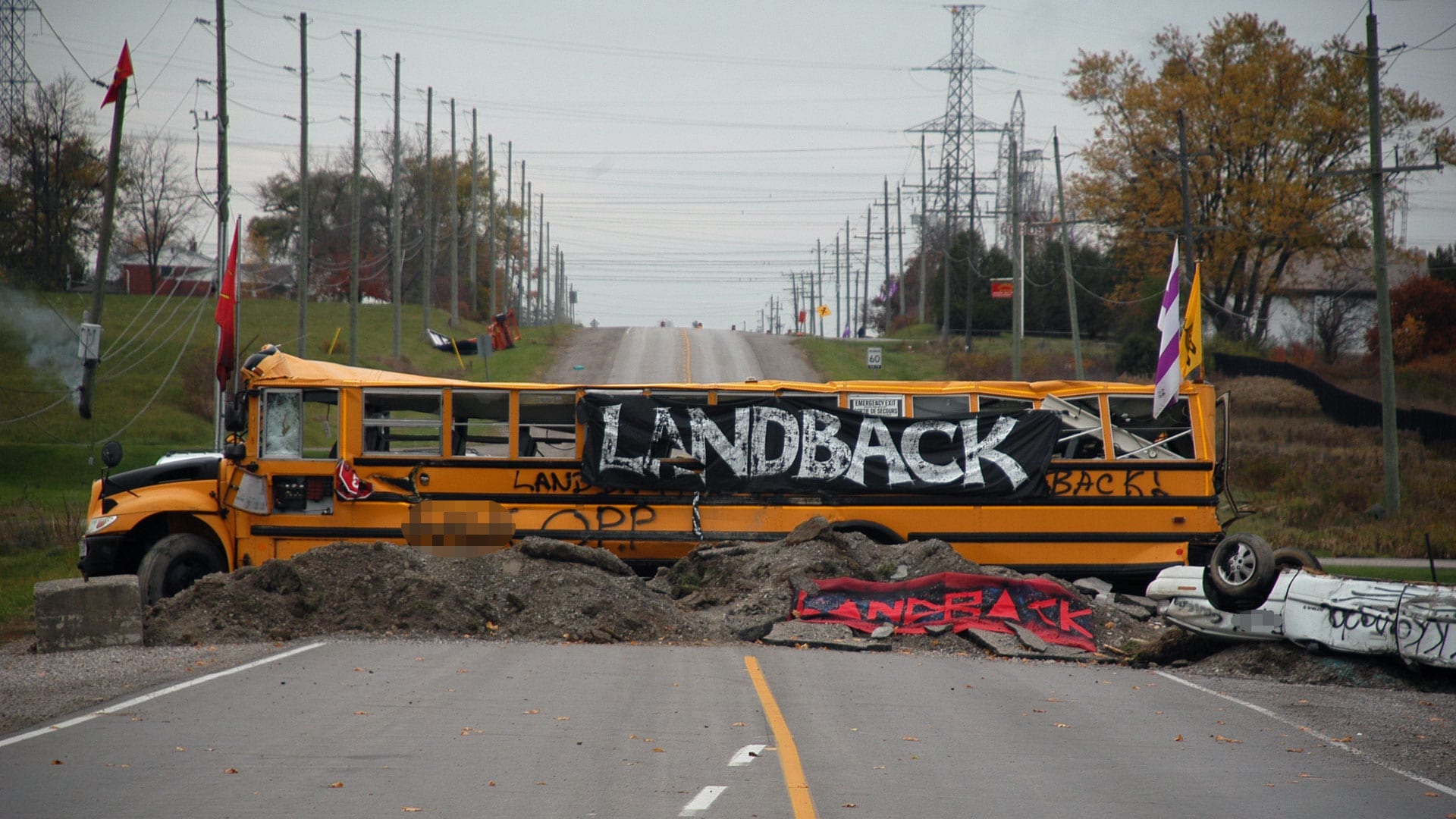
The class action names as plaintiff an entity called Poorkid Investments Inc., which a Google search links to a Pita Pit restaurant located on Argyle Street half a kilometre away from the blockade. No statement of claim has been filed.
Sheri Harding – a Caledonia realtor, resident and owner of the Pita Pit – said her business and others in the area have taken a hit since the blockades went up.
“If all it does is bring attention to it from a government level to try and get it rectified, I would be more than pleased with that. But, alternatively, if that’s not going to happen, then yeah we clearly need to be compensated by somebody for the loss,” said Harding, reached by phone Friday.
She said she lives on one of the country roads that has seen traffic surge, adding that she worries for the welfare of both communities.
“My business and every business relies on the support and the friendship with Six Nations, and at this point they cannot get into town, so that’s a problem. Likewise, they also rely on the support of the communities around them, and we can’t get there either.”
APTN News reached out to the OPP for comment but did not immediately hear back. The Ontario attorney general’s office declined to comment as the matter is before the court.
Businesses and homeowners launched a similar lawsuit in 2006, when Six Nations people occupied and reclaimed the Douglas Creek Estates development site as Haudenosaunee territory. The provincial government settled the suit for $20 million in 2011.
Ontario also purchased the disputed housing development, now known as Kanonhstaton in Mohawk, and still holds the parcel in trust 14 years later. Six Nations members have used Kanonhstaton to maintain access to the McKenzie Meadows construction site through unmaintained access road that links the two properties.
Six Nations members occupied the site in July and renamed it 1492 Land Back Lane, claiming it as unceded Haudenosaunee territory. The builder Foxgate Developments quickly sought and obtained an injunction, which the police enforced. The OPP Public Order Unit raided the camp and arrested nine people on Aug. 5.
Community members erected retaliatory blockades afterward and quickly retook the site. Those blockades were dismantled near the end of August, but the situation repeated two months later.
A skirmish broke out at the Kanonhstaton support camp after two masked individuals damaged a police cruiser with rocks and a lacrosse stick. The cops responded with a Taser and rubber bullets. Community members then built the blockades again, dug up roads, and ripped up train tracks.
The conflict broke out only hours after a judge issued two permanent injunctions barring road blockades and ordering the land back camp dismantled.
The disputed land sits in former Oneida Township, for which the Six Nations elected council filed a specific land claim in 1990. Canada closed this claim and others in 1995 when the elected council launched a claim for damages, citing frustration with the specific claims process.
Council has stressed that under Ontario law the disputed land – even if illegally obtained by Canada – could not be returned to the Six Nations since it’s been possessed by third parties since 1853.
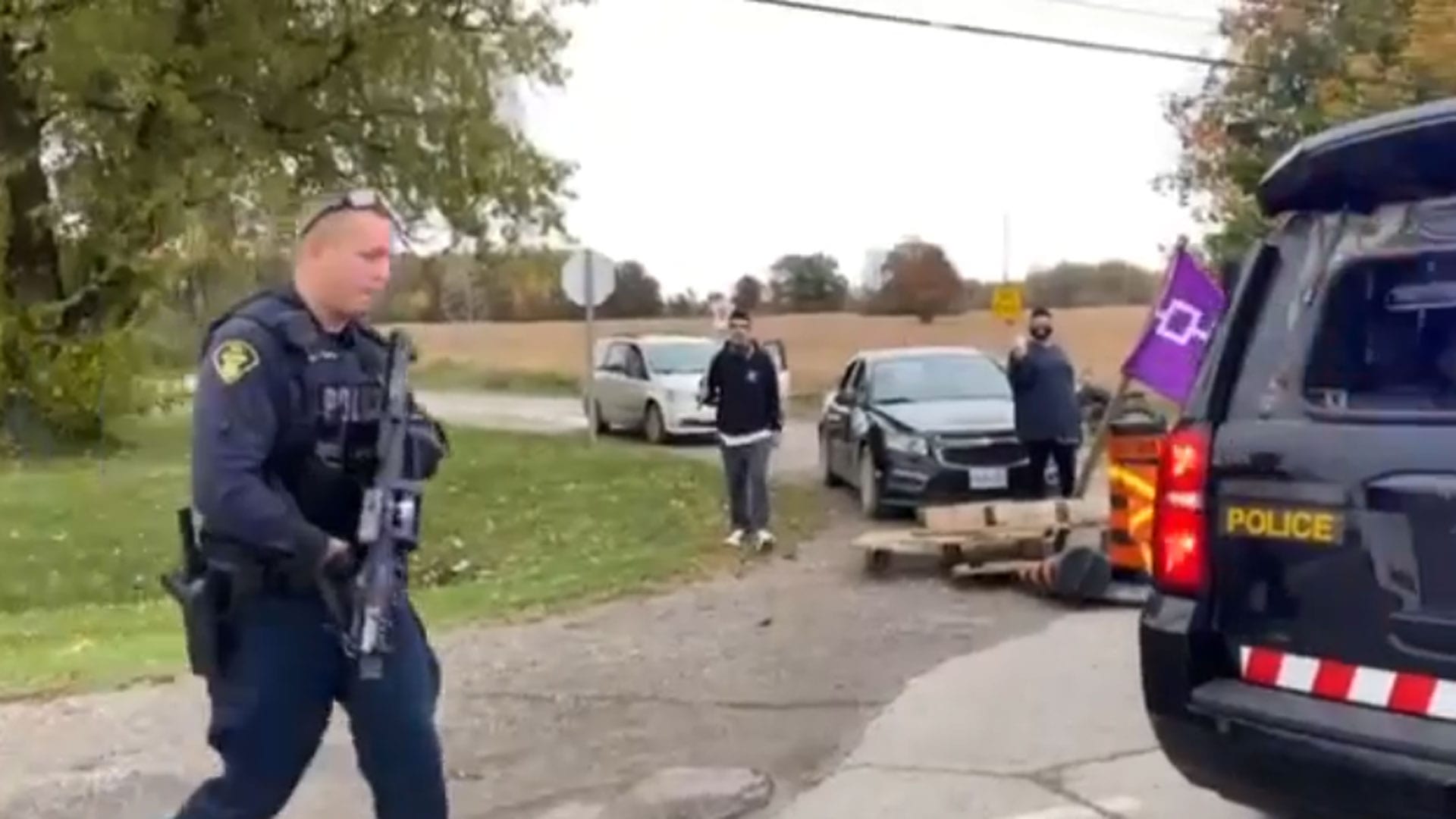
Skyler Williams, spokesperson for the group, represented himself in the injunction proceedings, but Justice John Harper ruled him in contempt of the existing court orders and struck his evidence from the record.
“The pleadings and the evidence I put forward was an honest effort to engage in the legal system at a time that I was unrepresented in the Court process,” said Williams in a release. “Any injunction that limits Indigenous land rights should be rigorously tested on its merits.”
Williams has now lawyered up and the group announced on Thursday it appealed the injunctions.
“This appeal raises important issues that speak to procedural fairness, natural justice, and an underlying tension of individuals who are Indigenous and their ability to engage with the Canadian legal system,” lawyer Wade Poziomka said. “From our perspective, there are strong grounds to advance this appeal and we will not comment further until the Court of Appeal for Ontario has decided these issues.”
Thirty-four people have been charged in total since the occupation started. Several of the accused individuals appeared in criminal court earlier this week.
The Crown elected to try for summary conviction in many cases and elected to indict one person accused of the more serious crime of arson. Their cases were put off to a future date.
Meanwhile, blockades remain in place as the camp digs in for the winter.





